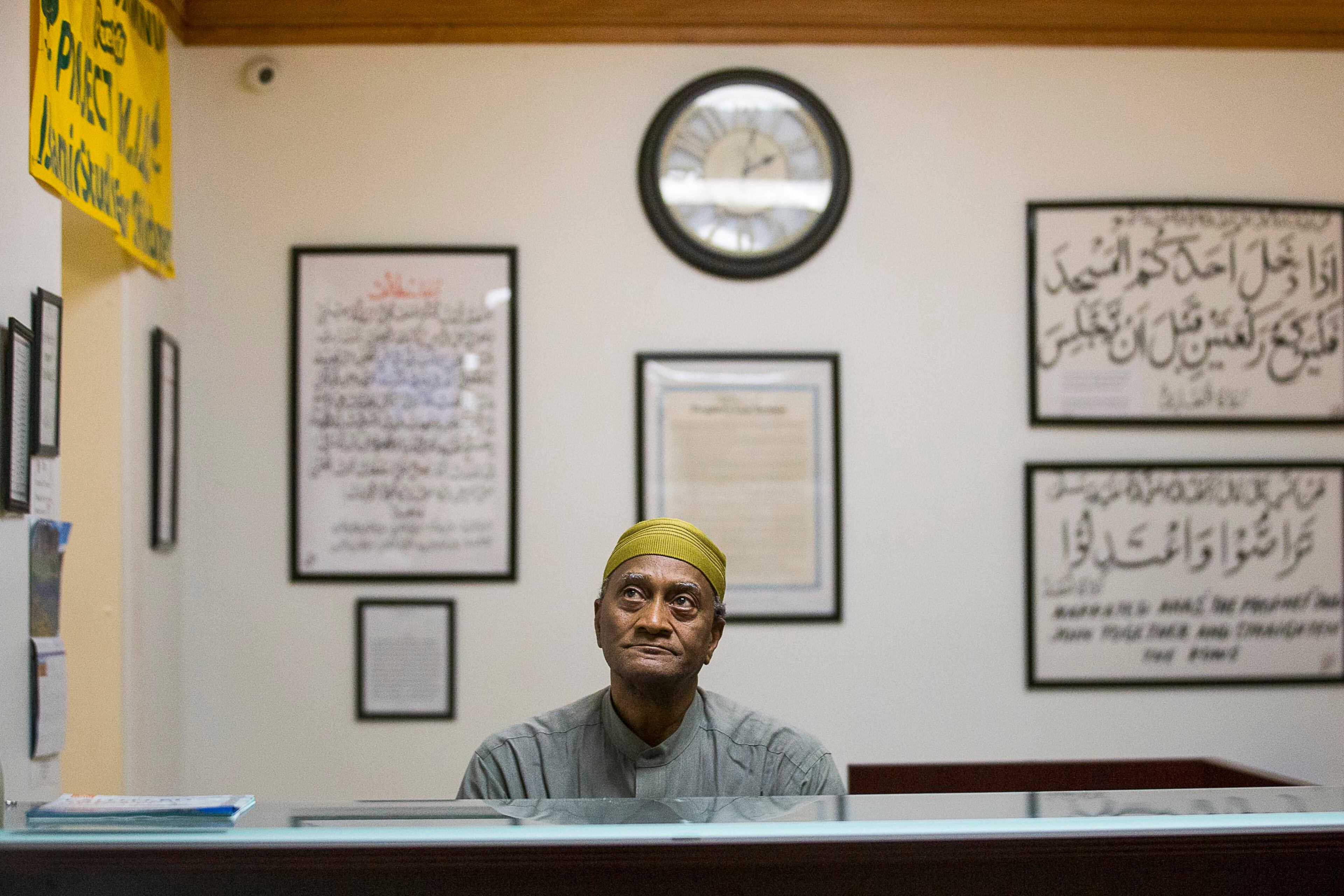Atlanta-area mosques heighten vigilance following New Zealand massacre

Anthony Sanders slid on a fluorescent orange “Security” vest, tucked his pistol under the waistband of his jeans and planted his feet at the front entrance to the Masjid Al-Mu’minun mosque in Atlanta during Friday afternoon prayers.
Sanders closely watched each person who walked in, looking for “shaky” behavior, big bags or clothing that didn’t match the warm weather. Three other men monitored each car pulling into the front parking lot. A fourth man stood sentry inside, watching live security camera footage from many different angles.
Sanders and his crew were being extra cautious following Friday’s mass shootings at a pair of mosques in New Zealand, a massacre that claimed the lives of 49 people and injured dozens more. Police have taken three people into custody. One has been charged with murder, an unidentified man who left behind a white nationalist manifesto that rails against immigrants and Muslims.
>> RELATED | "My heart breaks": Atlantans, world leaders condemn attacks on New Zealand mosques
“It’s unfortunate that when these things happen that we have to become more aware — more conscious — of security. But, I mean, New Zealand? Nothing happens there,” Sanders, a private security guard who volunteers at the mosque, said of his shock.
At a news conference inside Sanders’ mosque Friday, the Georgia chapter of the Council on American-Islamic Relations called on local police to send patrol cars out to guard local Muslim houses of worship. Atlanta and Gwinnett County police confirmed they would help.
“We have our officers conducting directed patrols around city mosques and asking them to be on heightened alert for suspicious activity,” Atlanta police spokesman Carlos Campos said. “Additionally, our Homeland Security Unit is monitoring the events out of New Zealand.”

Gwinnett police responded similarly.
“In response to the incident in New Zealand, we have increased patrols at all mosques in Gwinnett County,” said Cpl. Michele Pihera, a Gwinnett police spokeswoman. “We hope to bring some measure of comfort to those who visit these places of worship during this difficult time.”
Since 2005, there has been a rise in anti-mosque incidents, including acts of vandalism, according to the American Civil Liberties Union. In Georgia, for example, there have been nearly a dozen incidents.
In the summer of 2017, for instance, a man made several threatening phone calls to the Islamic Society of Augusta, including threats to blow up the mosque and hurt members. The man later pleaded guilty.
Centers of faith are by nature open and welcoming to anyone who wants to visit, and that makes them vulnerable, said Glen Evans, president of ChurchSecurityTrainer.com in Dayton, Ohio, which advises faith leaders on how to protect their members.
“Most people who want to cause harm understand this about the faith community,” Evans said. “They all share one common footprint — they were generally welcoming places with generally nonviolent people. It’s what we call a soft target.”

When people hear screaming or shooting, they should be able to lock down an area without having to get permission from a pastor, imam or rabbi, Evans said. Those few seconds or minutes could save lives before police arrive, he added. There is a movement to station armed people inside places of worship, including specially trained members, private security guards and off-duty police officers, Evans said.
Sulaimaan Hamed, the imam at Atlanta Masjid of Al-Islam, said armed personnel protect his mosque.
“Georgia is a state that respects our Second Amendment, as do I,” he said. “We do have armed security who are licensed — who are trained — to protect those who come to worship God.”
>> MORE | President Trump on New Zealand shootings: "We stand ready to help"
Furqan Muhammad, the imam at Masjid Al-Mu’minun, pointed to his mosque’s longstanding security plans, saying: “The best time to prepare for war is at peace.”
“Our faith teaches us to believe in God, to believe in Allah,” he said, “but tie your camel.”
Inside his mosque Friday, Abdulkarim Muhammad sat at a desk near the entrance, toggling between watching surveillance video footage inside the building and greeting everyone who walked down the hallway toward him.

A Marine veteran and grandfather, Muhammad peered inside a visitor’s black duffel bag. When another visitor in an Atlanta Braves ball cap reached out to shake his hand, Muhammad politely refused, saying he didn’t want to be distracted from his important duty. Meanwhile, he urged people to turn off their cellphones before they joined the Friday afternoon prayers.
Muhammad said he believes Allah will protect him, though he remains vigilant.
“Pray as well as watch,” he said. “I am always alert.”



